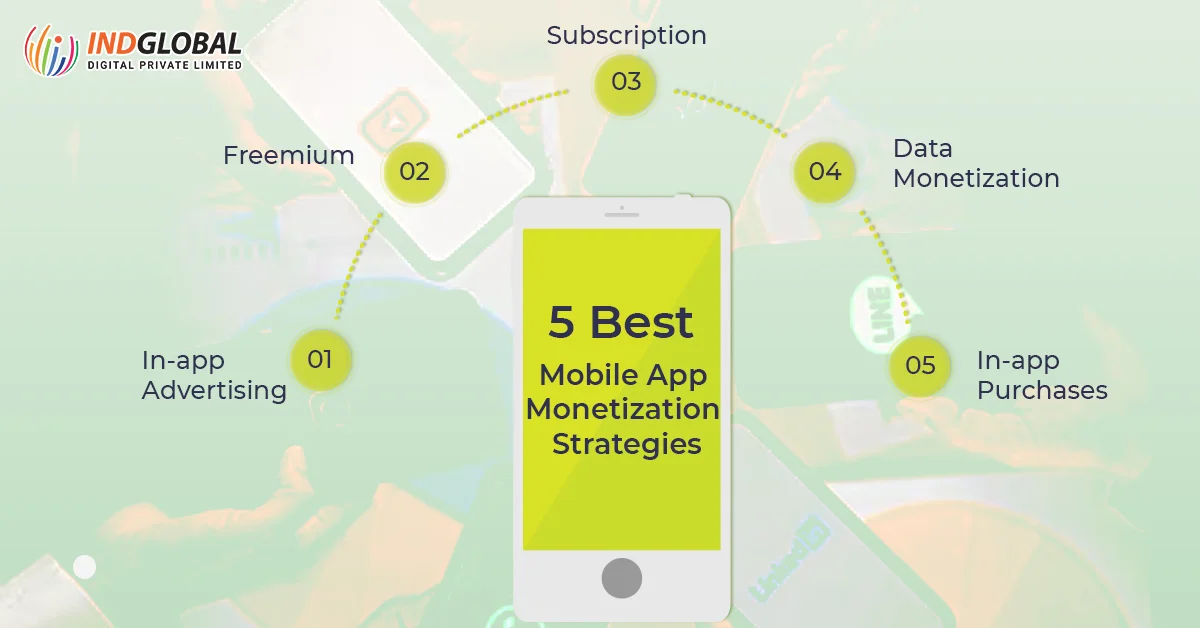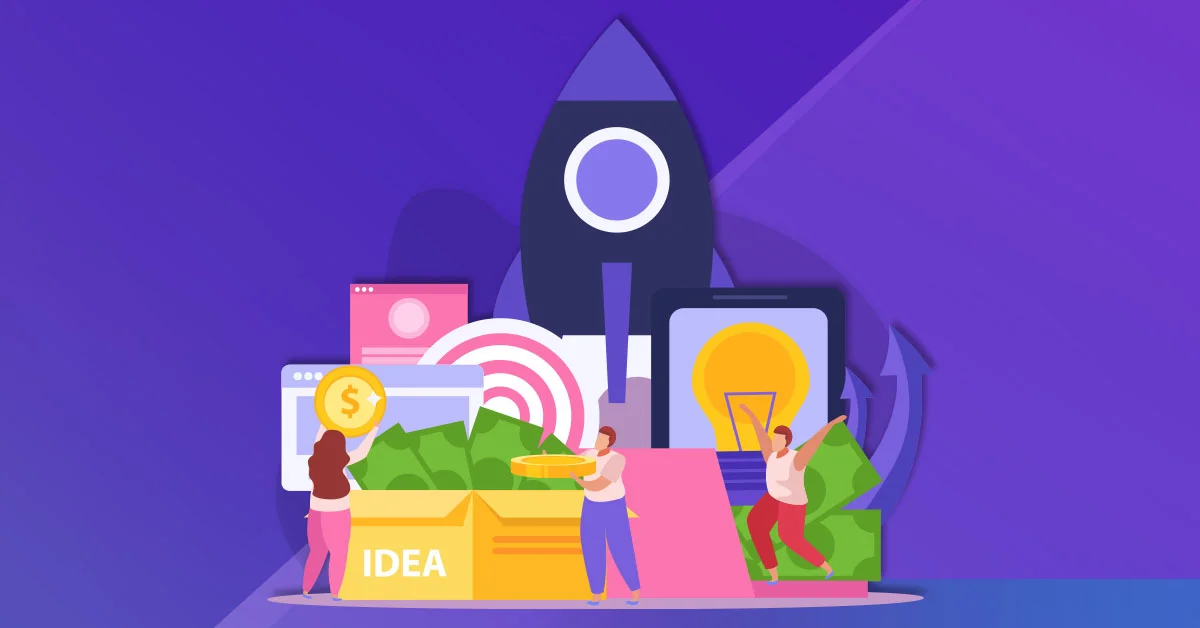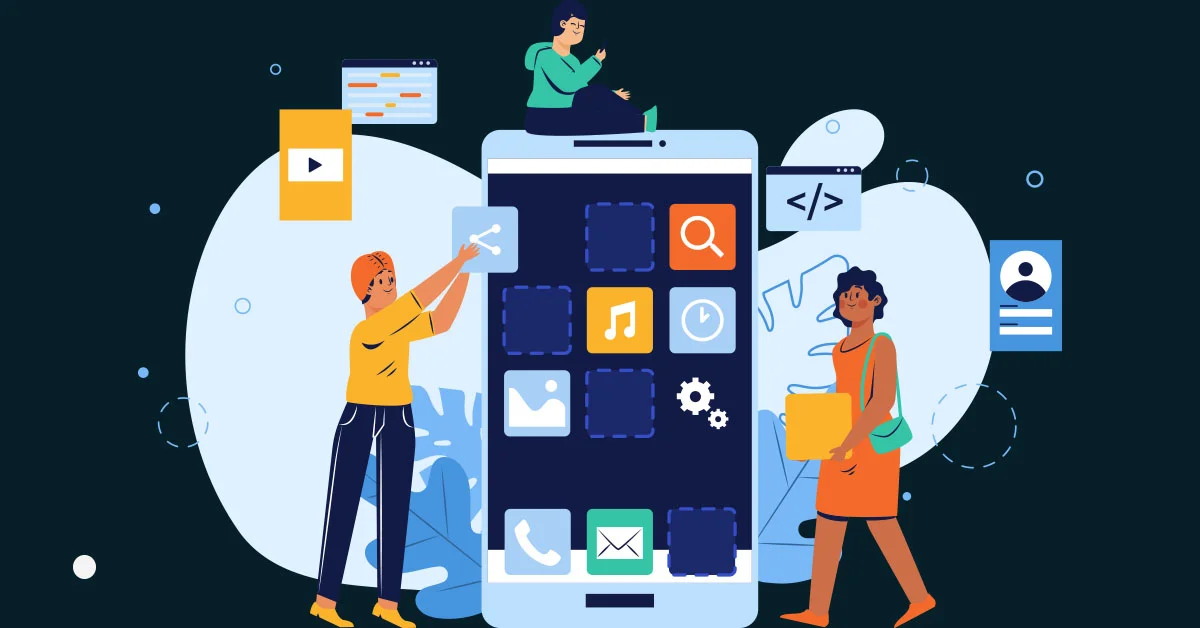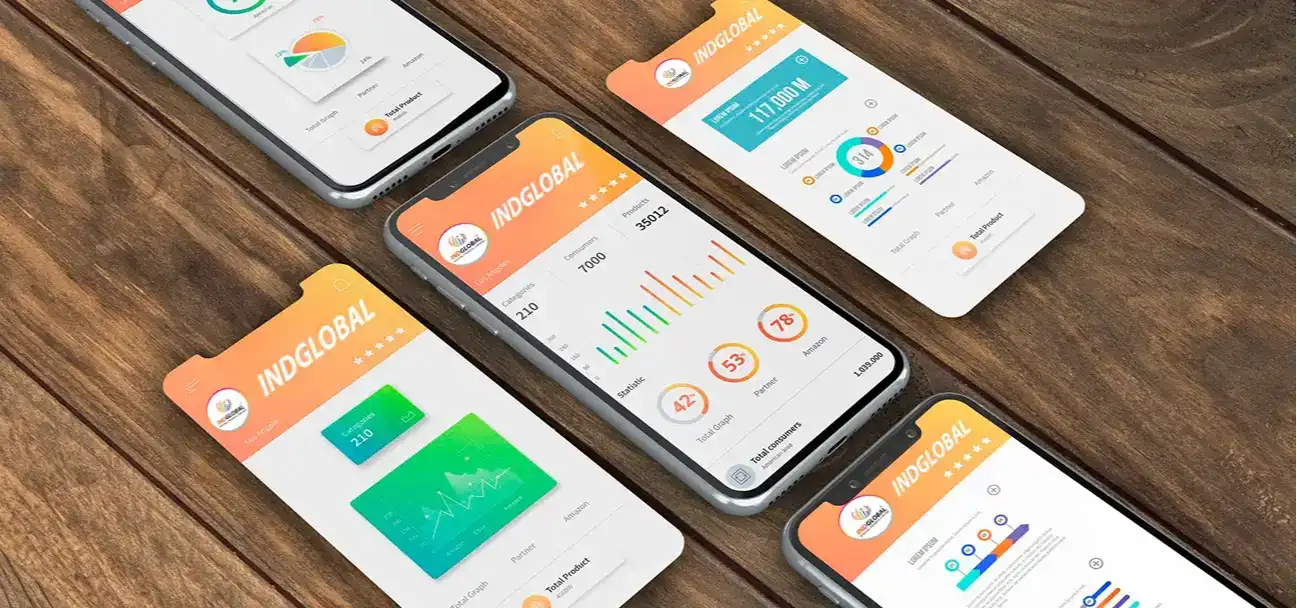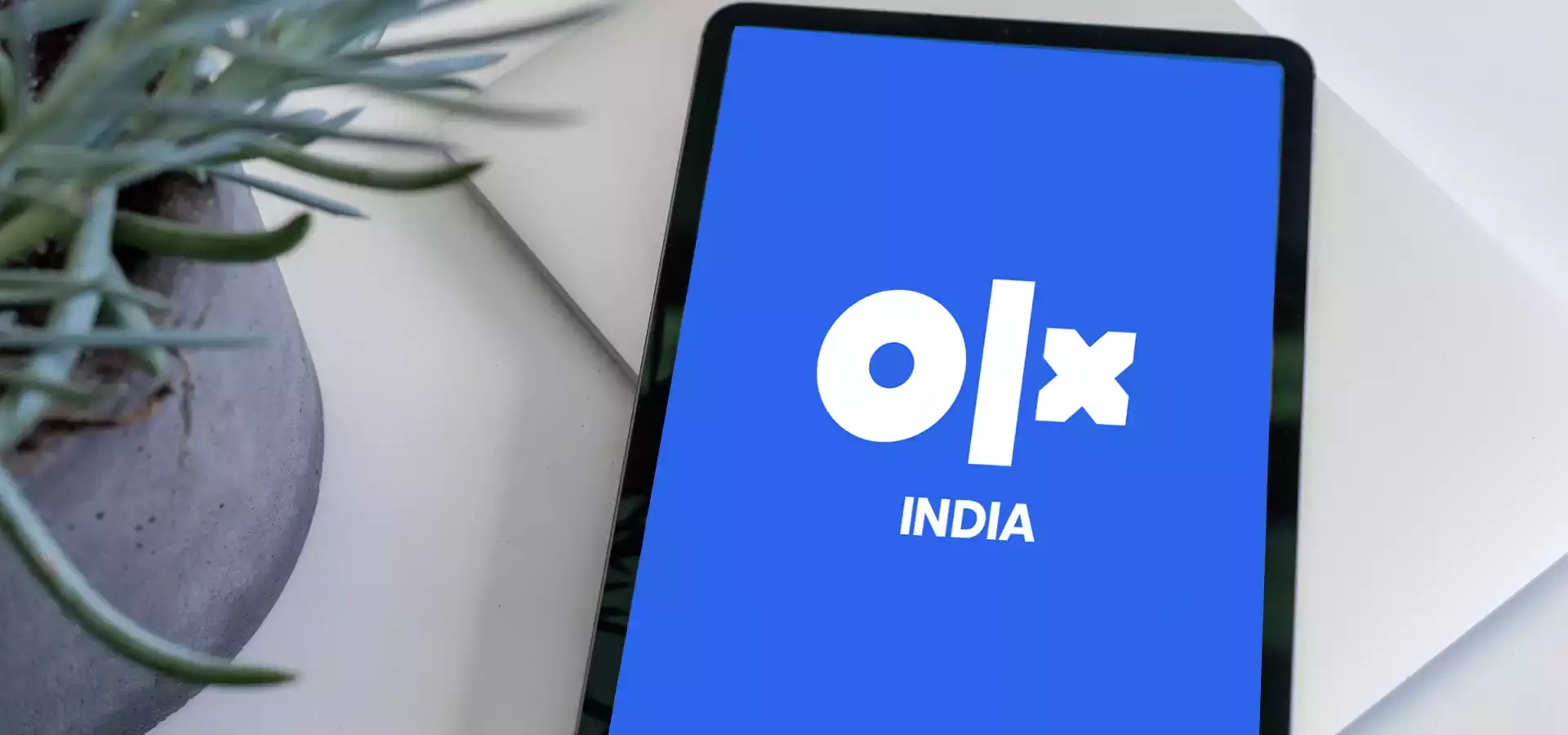Mobile app monetization is how your business uses its user base to make money through a mobile application. This is very different from the ways business firms want to develop and design a mobile app to generate profits, making this process very complicated.
With around 2 million mobile applications on the Apple App Store and 3 million apps on Google Play, it is important to launch an application that users fall for and get installed on their mobile phones. So, for a mobile app developer, it is necessary to use the right monetization methods to convert these users to your business’s potential customers and get the desired revenues.
And, to achieve this, there are several strategies, from which some of them are paid, some are in-app purchases, and other options. So, if you are monetizing your mobile app for the first time or want to get revenue from your successful running app, then the most recognized mobile app development company in Bangalore is here to provide you with information about the latest mobile app monetization techniques.
But, before we start, let us get some insights into what app monetization is.
What is App Monetization?
App monetization is the process that allows your mobile application users to generate revenue for your business without any download fees. App monetization strategies have become so popular that they easily help your business get more profits and generate high conversions.
Why is App Monetization Necessary to Run a Business?
For a business owner or startup strategist, it is essential to earn income from the mobile application. App monetization is crucial to earning profits because customers only find those apps which are free at the time of installation. Therefore, it is recommended to adjust your business model to get desired revenues.
Also, the developers can change the revenue model to receive money from the users. They should select the right strategy to ensure that the following things are correctly accomplished-
- The users and user experience are intact.
- The mobile app generates more revenue.
Many mobile users forget the second point, but it is very important to consider how mobile monetization impacts the user experience when you are focusing on revenue generation.
And, as a startup, app monetization is very necessary-
- To attract more customers and engage in the competitive market.
- To release mobile applications for tech-savvy users.
To know more about mobile app monetization, connect with our team of professional mobile app developers in Bangalore to get your doubts clear.
Therefore, before we begin knowing the top mobile app monetization tools, let us explore some numbers that show their importance.
- With 95% of mobile applications available for free, the app monetization market will generate around $935 billion in revenues by the end of 2023.
- There are around five million applications and users spend $380 billion on app purchases.
- The expenditure on the App Store will reach $200 billion by 2025.
- In 2021, Apple app store sales were around $31.8 billion and Google Play sales were $36.7 billion.
- 98% of the revenue from Google sales comes from installing free applications.
These statistics ensure that a mobile app can grow the business revenue and also maintain user experience. Now, taking this further, let us now read about the most popular mobile app monetization models that will help the business in generating revenues.
5 Best Mobile App Monetization Strategies
- In-app Advertising
With high sales of mobile in 2008 and the introduction of Google Play and Apple App Store, online advertising became the method of monetization after being established on the World Wide Web. All this made the app developers migrate the strategy to mobile devices with banner ads adapting the small mobile footprint.
Since then, app banner advertising for mobile ads has grown and included various options designed specifically for a great mobile environment involving video ads, native ads, text ads, and others.
Advantages
- In-app ads engage more audiences in the app and offer good conversions.
- In-app ads provide good results when compared to website ads. Also, they perform better than banner ads.
- Through in-app ads, you can easily target your audience and let them download an app if it is relevant, making the market more competitive.
Disadvantages
- You can advertise your competitor’s application in in-app advertising so that the user can click on the link and download the app.
- The number of clicks is small, despite the audiences being captive. This does not provide the desired response to your ad.
Example: All the gaming applications.
- Freemium
The Freemium app monetization strategy has acquired almost 94% of the online market and is now considered the most popular model for Android developers. It is an efficient monetization strategy to expand your business user base. It easily combines the premium and free features in one app, but the free version only lets the customer use the basic functions.
The premium version allows users to access premium content and features after making any purchase. All you have to do is keep the right balance between providing a few or many free features for an attractive user experience to the users.
Advantages
- There are ample income streams for mobile applications.
Disadvantages
- There is a considerable amount of time to make the business profitable.
Example: Spotify, the biggest music streaming app, is ruling the market through this amazing app monetization strategy. The average conversion rate of the app lies between 2 to 5%. Spotify can easily turn around 42% of free users into paid subscribers.
- Subscription
Around 52% of business owners have chosen a subscription app monetization strategy that gave a positive impact on their business. The subscription-based model increased the user base and revenue of the organization. The strategy lets the users download the application for free, but to avail of unique services; they need to subscribe to them.
For a subscription app monetization strategy, you have to turn your customers into subscribers and make existing subscribers stay back. Communicate the advantages of updating the app to new users and focus on offering new features and content to the existing ones. This strategy is perfect if you have built a content application such as entertainment, news, and multimedia applications.
Advantages
- You can download the app for free before subscribing to the paid version.
- The model can easily attract several free users to your mobile app.
Disadvantages
- It is hard to determine how much content you can offer for free before asking the users to subscribe to the app.
Example: Netflix, a subscription-based entertainment application that gets $25 billion in a year. Using this strategy, users are asked to pay a monthly fee to access their app on one screen. The cost of the plan increases with the increase in screens.
- Data Monetization
Data monetization is the process to use data and increase business revenues. So, if you are a growing and efficient business organization, then data monetization is your strategy. There are divided into two types-
Direct data monetization includes selling direct access to data to third parties. The data can be in raw or transformed form.
Indirect data monetization includes analyzing the data for insights. This type of data monetization improves the performance of the business.
Advantages
- The strategy offers you the benefit of using a simple business model to easily manage your business.
Disadvantages
- There are times when users do not share their data, so as a business owner, you should be prepared for this.
Example: Uber is an example of a data monetization strategy where the data is shared with the ride partner with the consent of the users. Other companies may use this data for promotions and discounts.
- In-app Purchases
According to many studies, people have spent almost $380 billion on in-app purchases and app monetization strategies. This model lets the users purchase content, services, and other special features within the application. Making the app free to download, you can use various verified metrics to generate profit and revenue. Users can buy any service in the app and improve their overall experience.
To use this app monetization strategy, try to complement the user experience and make sure that your users know that the app is free on the app store, but there are in-app purchases. To do this, you can send the users notifications according to their activity; provide them with information about discounts, and many more.
Advantages
- If the app monetization strategy is planned well, then it can offer you great revenues.
- The model lets the users try the application before buying it and create a huge user base.
Disadvantages
- A mobile app with in-app purchases has to pay a certain amount that the app store charges as a fee.
Example: VSCO, a video and photo editor that can be downloaded for free. The application charges an amount to purchase a photo preset at the cost of $0.99.
Conclusion
To choose the best app monetization models for mobile applications, it is necessary to consider the audience, different opportunities, and audience. Some of them can be easily implemented, but before using them for your business, make sure of other requirements when you begin planning for app monetization at the first stage of app development.
Considering your skills is also a point to consider. If you are one of the world-class marketers, then select an in-app advertising strategy. And, if you are someone who knows what to sell your users, then the in-app purchases model will suit you.
With all this, do not forget to hire the most skilled team of mobile app developers and designers in Bangalore. The expert team will provide you with different ways for mobile development and its services. They will also help you keep an eye on the competitors and conduct in-depth research to know how much audiences are using similar apps.
Gather all these things together, and you are ready to choose the ideal app monetization strategy that can generate revenues for your business and make it grow stronger.
Next Post ←
The Do’s and Don’ts of Mobile App Security
RELATED ARTICLES
Request a quote or Talk to an expert
We guarantee a response in 6 hours or less. And the best bang for your buck.




